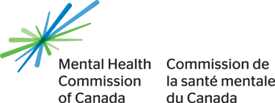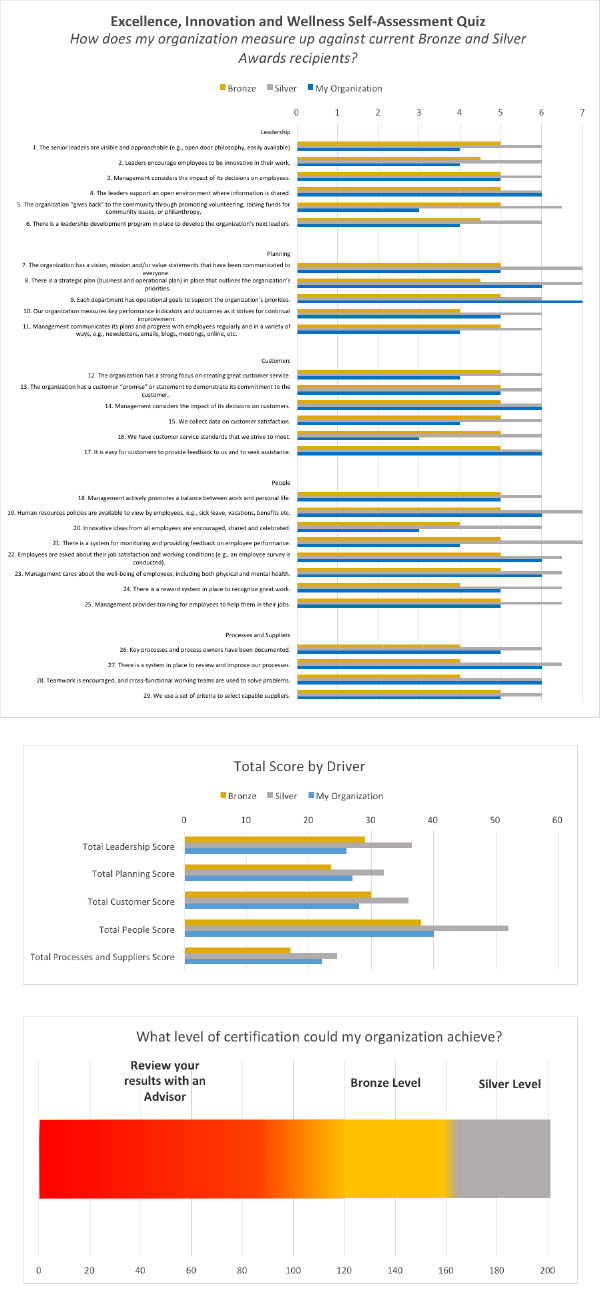Spotlight

The Mental Health Commission of Canada (MHCC) is no stranger to walking the talk when it comes to psychological health and safety in the workplace.
Our dedication to building a mentally healthy workplace coincided with the launch of the National Standard of Canada for Psychological Health and Safety in the Workplace (Standard), an initiative we championed in partnership with the Great West Life Centre for Mental Health and the Canadian Standards Association, as well as the Quebec equivalent, the Bureau de normalisation du Québec.
The Standard is a voluntary set of guidelines, tools and resources to help organizations of all sizes, in all sectors, prevent psychological harm and promote good mental health for every employee.
It was clear that to be a champion of the Standard, the MHCC had to behave like a champion.
That meant taking a hard look in the mirror.
Like most organizations, we didn’t start from scratch. We had an employee and family benefits program with better than average coverage for psychological services and two mental health and wellness days over and above the usual sick days. As early as 2012, our bi-annual employee survey included a focus on mental wellness. But implementing the Standard meant going beyond a great benefits plan and employee engagement to embedding psychological health and safety into every aspect of how we do business.
Integrating physical and psychological wellness under one roof made sense. At the Commission, our work is heavily brain-based, making the psychological well-being of MHCC employees the bedrock of our success.
Over the years the MHCC developed a mental health strategy for Canada, launched a campaign to reduce stigma and discrimination surrounding mental illness and built a knowledge exchange centre to accelerate change. Today we continue to address the policy gaps identified by the strategy, advise government on pressing mental health issues and create resources to improve the lives of the one in five people in Canada who experience a mental health problem or illness in a given year.
At the MHCC, creating a psychologically healthy workplace means offering a comprehensive suite of programs to provide employees with treatment—the earlier, the better—but that also tackle prevention and health promotion. At the MHCC, Mental Health First Aid (MHFA) and The Working Mind (TWM) training are mandatory for all staff.
Akin to physical first aid, MHFA is the help provided to a person developing a mental health problem or experiencing a mental health crisis until appropriate treatment is found or until the crisis is resolved. TWM training reduces stigma and increases resilience in employees and managers. It uses the mental health continuum model which puts mental health on a simple colour scale: green (healthy), yellow (reacting), orange (injured), and red (ill), allowing for discussions without the use of formal labels.
Beyond programs, a psychologically safe workplace means ensuring that employees understand their role, and how it ties back to the greater organizational goals. A workplace free of harassment and bullying is crucial, but so too is ensuring workloads are manageable, expectations are clear, and talent and expertise are aligned with job functions.
It also means creating a culture wherein people believe they have the freedom to air their grievances, and are confident that the resolution will lead to positive change. It is within this framework of accountability that the organization provides transparent metrics and objective analysis to inform the entire staff about everything from turnover rates to average days absent. This kind of reporting allows leadership to identify and address problem areas before they reach a critical mass.
We are an organization that must be nimble, responding to emerging needs and priorities. This kind of ever-changing environment can be challenging for staff to navigate, so rooting our staff wellness plan in policies and practices that promote psychological health is crucial.
The MHCC’s wellness plan is a living document. First launched in 2014, it is reassessed every two years through a continuous cycle of engagement, assessment, planning, implementation, evaluation and adjustment.
But the wellness plan is not a top-down affair. The Commission works collaboratively with employees through its Physical and Psychological Health, Safety and Wellness Committee to foster employee participation in the development, implementation and continual improvement of a healthy and safe work environment.
It has not been easy for the MHCC to achieve the prestigious Order of Excellence for Mental Health at Work, the highest level of recognition in the four-level Progressive Excellence Program. Along the way we have benefited from the experience of others including the 40 organizations, representing 250,000 employees, that agreed to have their implementation of the Standard tracked as part of the MHCC’s three-year Case Study Research Project to identify promising practices and lessons learned.
As the first organization to receive this honour, we hope to inspire other employers to embrace the value of prioritizing mental health at work and to integrate it into the fabric of how they do business.
By Louise Bradley
President & CEO, Mental Health Commission of Canada
